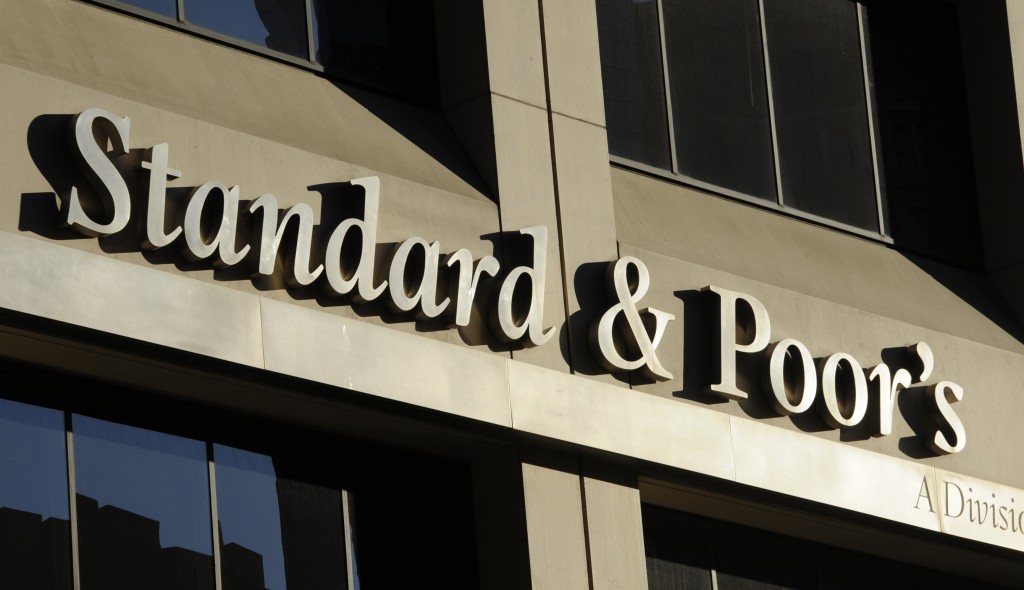
Standard & Poor’s Ratings Services on August 12, 2015, praised China’s devaluation of the yuan as the credit rating agency tried to allay fears of a currency war. AP
NEW YORK, United States – Credit rating agency Standard & Poor’s praised China’s devaluation of its currency on Wednesday and said the move did not threaten a currency war.
“China’s surprise move to allow for more exchange rate flexibility makes good economic sense and is not the start of a currency war or an attempt to jump-start growth,” S&P said.
Beijing on Tuesday surprised global financial markets by devaluing its currency the yuan by nearly two percent against the US dollar.
A second cut on Wednesday brought reductions this week in the yuan to 3.5 percent against the dollar to its lowest level in four years.
The move to allow more flexible trading “could help maintain the flexibility of the country’s monetary policy as cross-border financial flows increase,” S&P said.
The shift is part of an effort to comply with conditions set by the International Monetary Fund to qualify the Chinese currency in the IMF’s “special drawing rights” basket.
China wants to expand use of the yuan by having it included in the SDR, an international reserve asset that currently comprises four currencies: the dollar, euro, pound and yen.
But the IMF has been pressing China for greater liberalization in the yuan to win membership.
S&P rejected arguments that the devaluation was motivated by a desire to boost Chinese exports.
“The argument that China is trying to spur growth by weakening its currency to spur exports does not strike us as very convincing,” said Paul Gruenwald, S&P’s chief economist for Asia-Pacific.
“Exports are more a function of foreign demand, with the exchange rate playing a secondary role. There is no reason for that relationship to have changed.”
The IMF has praised China’s moves this week, with a spokesman calling the shift “a welcome step as it should allow market forces to have a greater role in determining the exchange rate.” CB